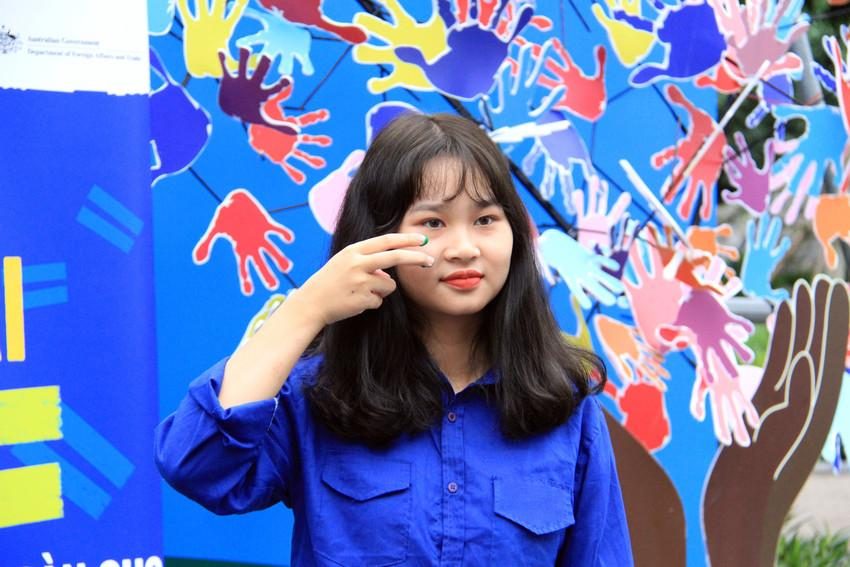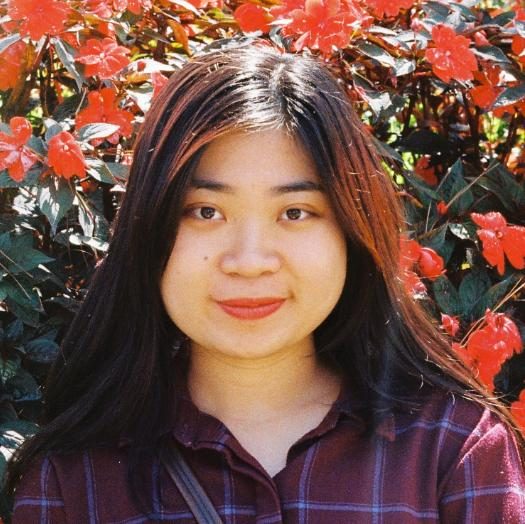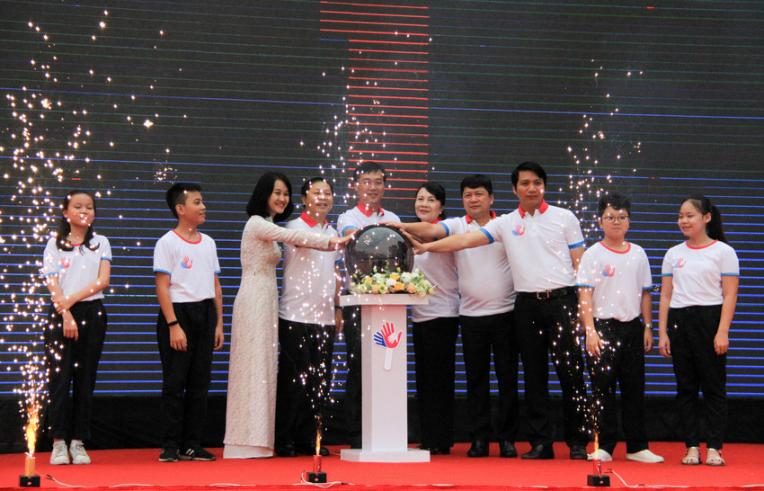Phuong Anh, 23, from Hanoi on what intersectional feminism means to girls and women in Vietnam.

Blog by Tran Huu Phuong Anh, Communications Officer, Plan International Vietnam.

When I was 7, growing up in Hanoi, I noticed people would treat me and my brother differently. People in my hometown looked at girls and boys differently, too.
When I was 10, I realised people treat ‘different’ girls in another way, too.
My parents had brought me to a small town in the countryside to attend a relative’s wedding. I was sitting on the high table, having fun, eating food served by a small girl about the same age as me. Excited to have found someone to talk to, I looked for the girl and found her in the corner of the kitchen, eating with her mother, sisters and other girls and women.
“Why don’t you join us up there?” I asked.
“It’s not our place,” one woman said. “Men here eat on high tables, women and girls eat in the kitchen.”
I was so surprised – I insisted that I was a girl too!
“But you’re a city girl. City girls are different from country girls,” the woman said.
I watched those girls and women wash dishes while I sat at the table eating cake with men and other ‘city women’. That day I learned I had the privilege of a ‘city girl’.
What is intersectional feminism?
The term ‘intersectional feminism’ is still new in Vietnam, to the extent that 10 out of 10 girls started googling it when I asked! But the concept is easy to understand.
By its dictionary definition, intersectionality is the idea of the interconnected nature of social categorisations such as race, class, gender, sexuality and ability etc. These categorisations or identities result in overlapping systems of discrimination or disadvantage.
To simplify, when you look at a person, there are many different facets that you need to take into consideration to understand their position, power or privilege.
So, when you meet a girl, she might not simply be facing issues caused by her gender. When you dig deeper into her experience, you may find she is a girl from an ethnic minority who has to drop out of school to get married early; or she is a lesbian, struggling to be herself while living in a society that doesn’t support the LGBTQ+ community.

Sharing your power
The job of a feminist ally is not to dwell on these intersections but to acknowledge your own privilege – like mine as a city girl – and use the power you have to support others whose voices are less likely to be heard.
This is why I work for Plan International. Working on a project to end child marriage in Vietnam, I have come to realise that many girls from ethnic minorities have to face serious issues such as poverty and child labour. When basic needs such as food to eat and safe home to live in are not even met, how can these girls begin to think about bigger issues such as gender equality?
I’m an intersectional feminist because while I work to end child marriage in my country, I will work hard to remember these girls, listen to them and ensure their unique needs are addressed.
How to be an intersectional feminist
Now you know what the term means, here is how you can use this concept in a meaningful way as a campaigner.
1. Use your platform to support those with less privilege
For example, male allies can help girls be heard by raising their concerns both in places of power, and in the community.
2. Listen and learn from diverse groups
Talk to people, learn about their issues, find out what they need support on.
3. Take criticism onboard
It can be hard to hear criticism, but if we don’t listen, we’re not truly helping those with less privilege. People’s lived experiences are more important than what you think you know.
4. Create strength in numbers
Support other groups to create a bigger community working towards social justice and equality for all.
5. Share ideas and resources
We’ll achieve gender equality sooner if we learn from other groups on what has worked.
Looking through a different lens
It is obvious that from birth, we’re not all at the same starting point and for many this will carry on throughout their lives. Imagine I went back to the countryside to meet the girl at the corner of the kitchen and ask her to fight for gender equality with me.
I’m an intersectional feminist because while I work to end child marriage in my country, I will work hard to remember these girls, listen to them and ensure their unique needs are addressed.
I wonder what her answer would be, since she has such a long way to go to become what she considers a “city girl” with lots of privilege?
That’s why I use my privilege to help girls who have less of a voice than I do.